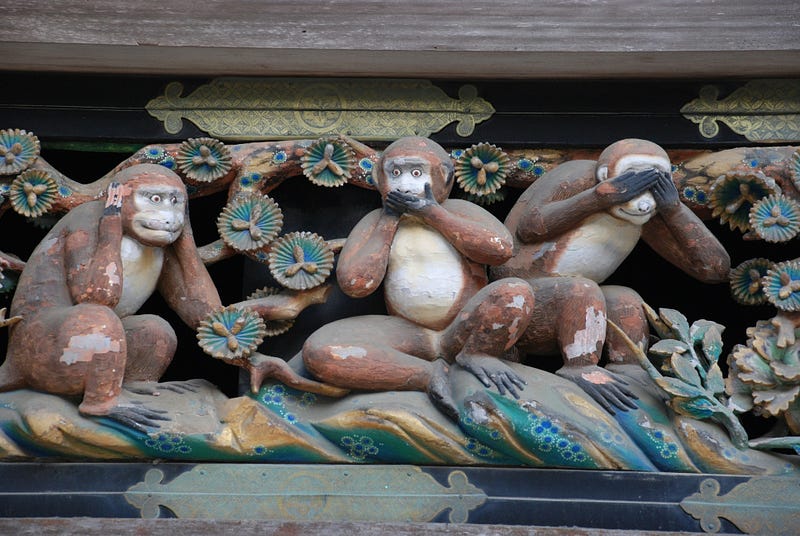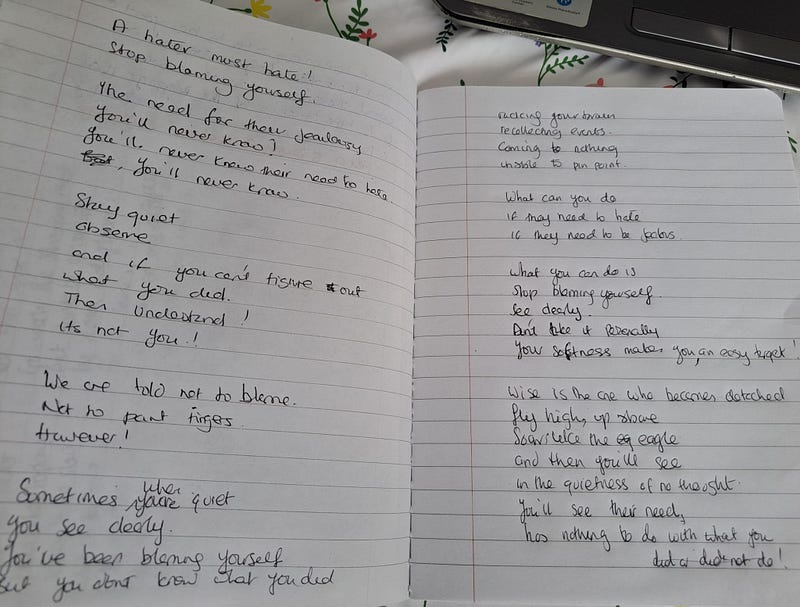Embracing Self-Mastery: Understanding Jealousy and Pain
Written on
Understanding the Nature of Jealousy
Jealousy often compels individuals to express negativity. It's essential to refrain from self-blame. Their resentment stems from their own insecurities, and you might never fully grasp the reasons behind their animosity.
Stay calm and observe your surroundings. If you're struggling to understand your role in their behavior, recognize that the issue lies within them, not you.
Society teaches us to avoid assigning blame and to take responsibility for our feelings. However, in moments of quiet reflection, clarity may emerge. You may find that you have been unjustly blaming yourself, pondering questions like “What did I do?” and coming up empty-handed.
What should you do in such situations? Understand that if someone harbors jealousy, it’s not a reflection of your worth.
Instead, adopt a perspective of detachment. Elevate your thoughts and emotions, similar to an eagle soaring above the ground. In this space of tranquility, you will realize that their need for negativity is unrelated to you.

Chapter 1: The Cycle of Self-Blame
This poem stems from my experiences as a confidant for someone close to me. It reflects the emotional turmoil that can arise when we seek to understand why others treat us poorly.
Many of us possess a gentle nature and yearn for harmony. When faced with unkindness, we often internalize it, questioning our own actions and feeling hurt. The cycle of self-blame can be relentless, leading us to believe we’ve done something to provoke their disdain, even in the absence of direct interactions.
Section 1.1: The Emotional Toll
It's challenging to find solace for someone suffering from these thoughts, especially when their health is compromised. Such pain can exacerbate their distress, affecting both their physical and emotional well-being.
Subsection 1.1.1: The Wisdom of Self-Reflection
Wisdom teaches us to avoid blaming others entirely. There may be elements of our past contributing to the situation. In some ways, it’s reminiscent of a story where every character, including the antagonist, plays a pivotal role in the protagonist’s growth.
The adversities we face serve as challenges that can ultimately strengthen our resilience. Just as raw diamonds are polished by sandpaper, we too grow from these encounters.

Chapter 2: Transforming Pain into Power
In conclusion, I invite you to reflect on your experiences and share your insights. How do you transform feelings of being wronged into opportunities for growth? Thank you for engaging with my thoughts.